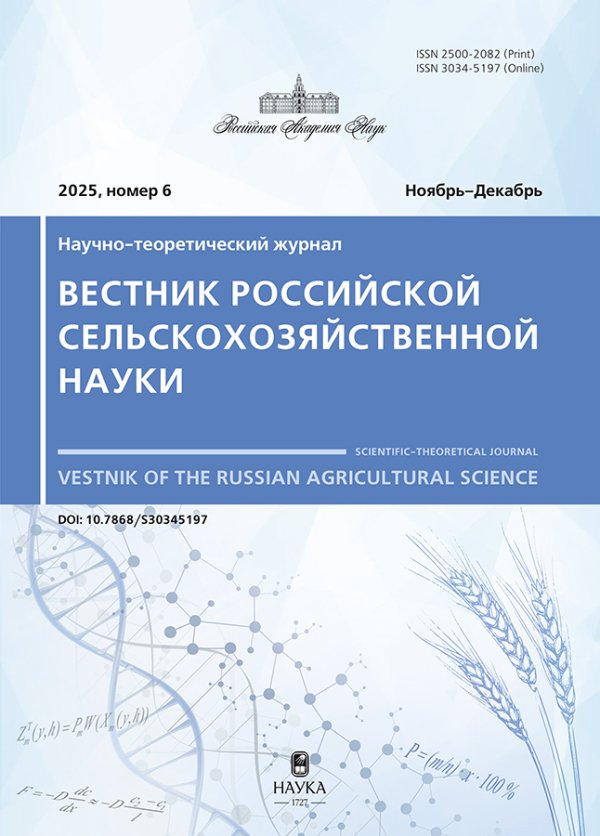Adaptation of the ISO 22000:2007 (HASSP) system in the production of innovative curd product production
- Authors: Kryuchkova V.V1, Gorlov I.F1, Slozhenkina M.I1, Mosolova N.I1, Alefirenko E.A1, Belik S.N2
-
Affiliations:
- Volga Research Institute of Meat and Dairy Products Production and Processing
- Rostov State Medical University
- Issue: No 1 (2023)
- Pages: 9-16
- Section: Articles
- URL: https://journal-vniispk.ru/2500-2082/article/view/144547
- DOI: https://doi.org/10.31857/2500-2082/2023/1/9-16
- EDN: https://elibrary.ru/OJORAX
- ID: 144547
Cite item
Full Text
Abstract
About the authors
V. V Kryuchkova
Volga Research Institute of Meat and Dairy Products Production and Processing
I. F Gorlov
Volga Research Institute of Meat and Dairy Products Production and Processing
Email: niimmp@mail.ru
M. I Slozhenkina
Volga Research Institute of Meat and Dairy Products Production and Processing
N. I Mosolova
Volga Research Institute of Meat and Dairy Products Production and Processing
E. A Alefirenko
Volga Research Institute of Meat and Dairy Products Production and Processing
S. N Belik
Rostov State Medical University
References
- Новости и аналитика молочного рынка. Обзор. Что сегодня происходит на молочном рынке России https://milknews.ru/longridy/rynok-moloka-situaciya.html (дата обращения 12.10.2022).
- Batool M., Ranjha MMAN, Roobab U. et al. Nutritional Value, Phytochemical Potential, and Therapeutic Benefits of Pumpkin (Cucurbita sp.). Plants (Basel). 2022. May 24. 11(11). P. 1394.
- Chapman B., Gunter C. Local Food Systems Food Safety Concerns. Microbiol Spectr. 2018 Apr; 6(2).
- Chiba T. Management of Food Hygiene and Safety by Hazard Analysis and Critical Control Point (HACCAP). Yakugaku Zasshi. 2022. 142(1). P. 27-31.
- Di Lorenzo L., Pipoli A., Manghisi N.M. et al. Nutritional hazard analysis and critical control points at work (NACCPW): interdisciplinary assessment of subjective and metabolic work-related risk of the workers and their prevention. Int J Food Sci Nutr. 2020. 71(7). P. 902-908.
- Hung Y.T., Liu C.T., Peng I.C. et al. The implementation of Hazard Analysis and Critical Control Point management system in a peanut butter ice cream plant. J Food Drug Anal. 2015. Sep. 23(3). P. 509-515.
- Khan I.T., Nadeem M., Imran M. et al. Antioxidant properties of Milk and dairy products: a comprehensive review of the current knowledge Lipids Health Dis. 2019. 18(1). p. 41.
- Kontareva V.Yu., Belik S.N., Morgul E.V. et al. Yogurt enriched to correct intestinal microflora in dysbiosis В сборнике: III International Scientific Conference: AGRITECH-III-2020: Agribusiness, Environmental Engineering and Biotechnologies. Krasnoyarsk Science and Technology City Hall of the Russian Union of Scientific and Engineering Associations. Krasnoyarsk, Russia 82051. 2020.
- Kontareva V.Yu., Belik S.N., Morgul E.V. et al. The effect of prebiotic components on the quality of yogurt В сборнике: III International Scientific Conference: AGRITECH-III-2020: Agribusiness, Environmental Engineering and Biotechnologies. Krasnoyarsk Science and Technology City Hall of the Russian Union of Scientific and Engineering Associations. Krasnoyarsk, Russia 82054. 2020.
- Kryuchkova V.V., Gorlov I.F., Korneichuk K.M. et al. Brine-ripened cheese enriched with vegetable ingredients: technology and quality В сборнике: III International Scientific Conference: AGRITECH-III-2020: Agribusiness, Environmental Engineering and Biotechnologies. Krasnoyarsk Science and Technology City Hall of the Russian Union of Scientific and Engineering Associations. Krasnoyarsk, Russia 82063. 2020.
- Kryuchkova V.V., Gorlov I.F., Belik S.N. As vegetable ingredients in functional fermented milk products В сборнике: III International Scientific Conference: AGRITECH-III-2020: Agribusiness, Environmental Engineering and Biotechnologies. Krasnoyarsk Science and Technology City Hall of the Russian Union of Scientific and Engineering Associations. Krasnoyarsk, Russia 82092. 2020.
- Lettieri-Barbato D., Tomei F., Sancini A. et al. Effect of plant foods and beverages on plasma non-enzymatic antioxidant capacity in human subjects: a meta-analysis Br J Nutr 109(9) 1544-56. 2013.
- Mensink M.A., Frijlink H.W., van der Voort Maarschalk K., Hinrichs W.L. Inulin, a flexible oligosaccharide. II: Review of its pharmaceutical applications. Carbohydr Polym. 2015 Dec 10. 134. P. 418-28.
- Serafini M., Peluso I. Functional Foods for Health: The Interrelated Antioxidant and Anti-Inflammatory Role of Fruits, Vegetables, Herbs, Spices and Cocoa in Humans Curr Pharm. 2016. Des 22(44). 6701-15.
- Shang H.M., Zhou H.Z., Yang J.Y. et al. In vitro and in vivo antioxidant activities of inulin. PLoS One. 2018. Feb 2. 13(2):e0192273.
- Wu Y., Huang R., Wang M. et al. Dairy foods, calcium, and risk of breast cancer overall and for subtypes defined by estrogen receptor status: a pooled analysis of 21 cohort studies. Am J Clin Nutr. 2021. Aug 2.114(2). P. 450-461.
Supplementary files










